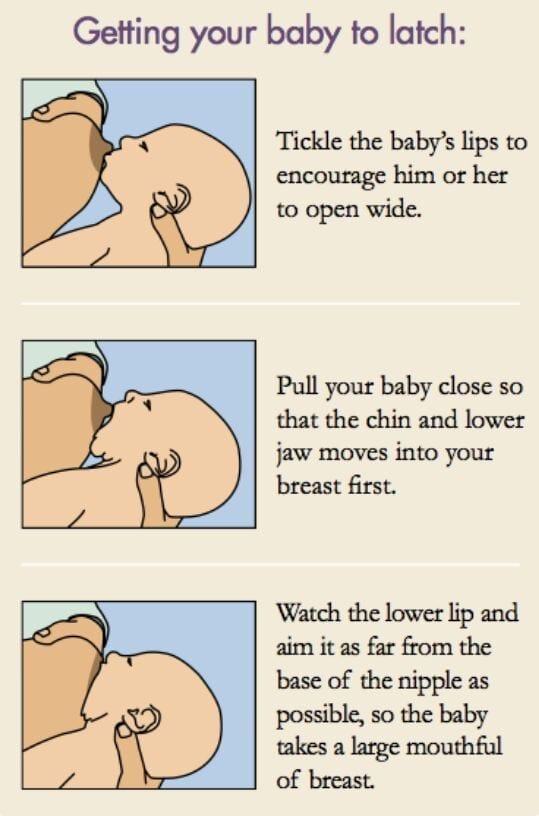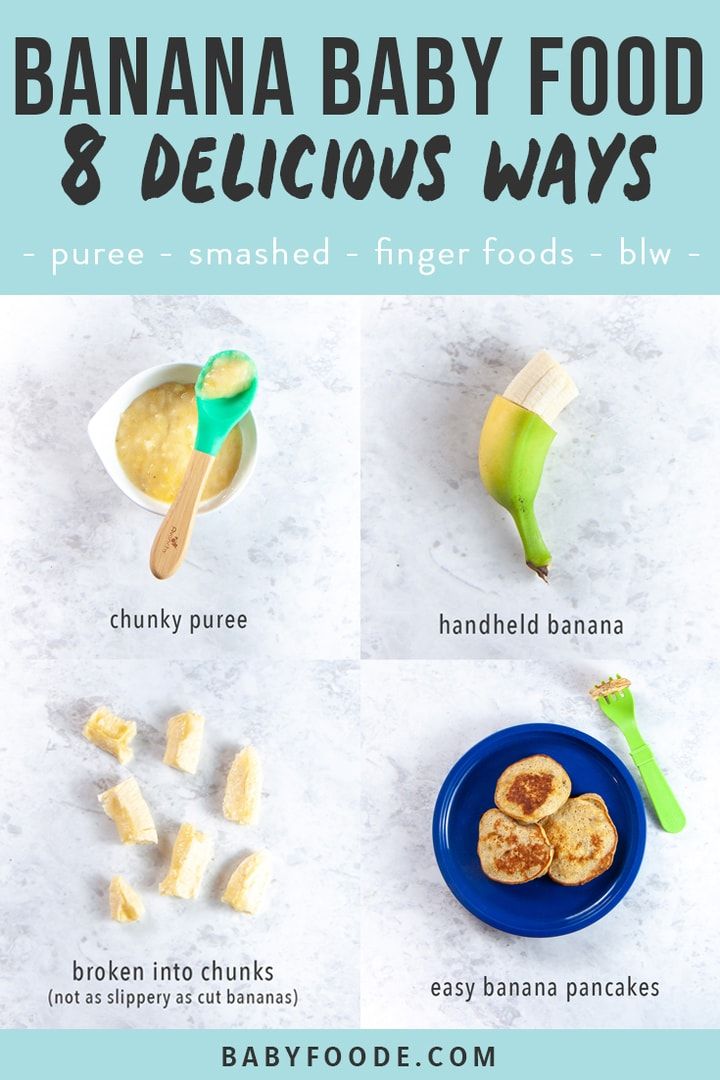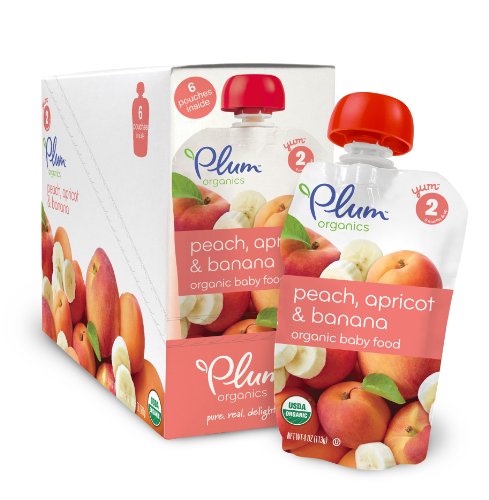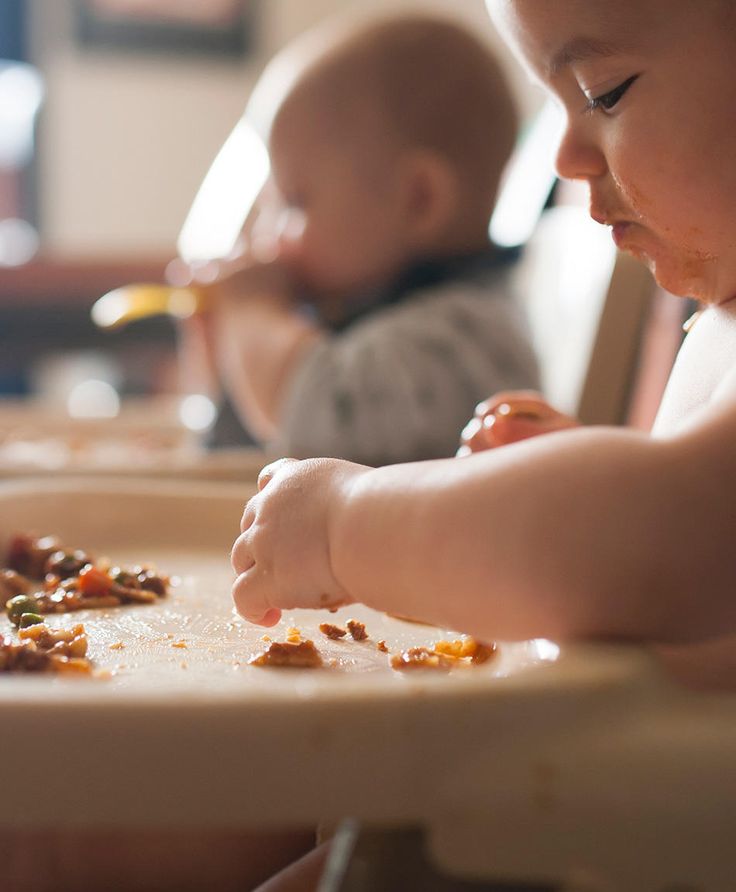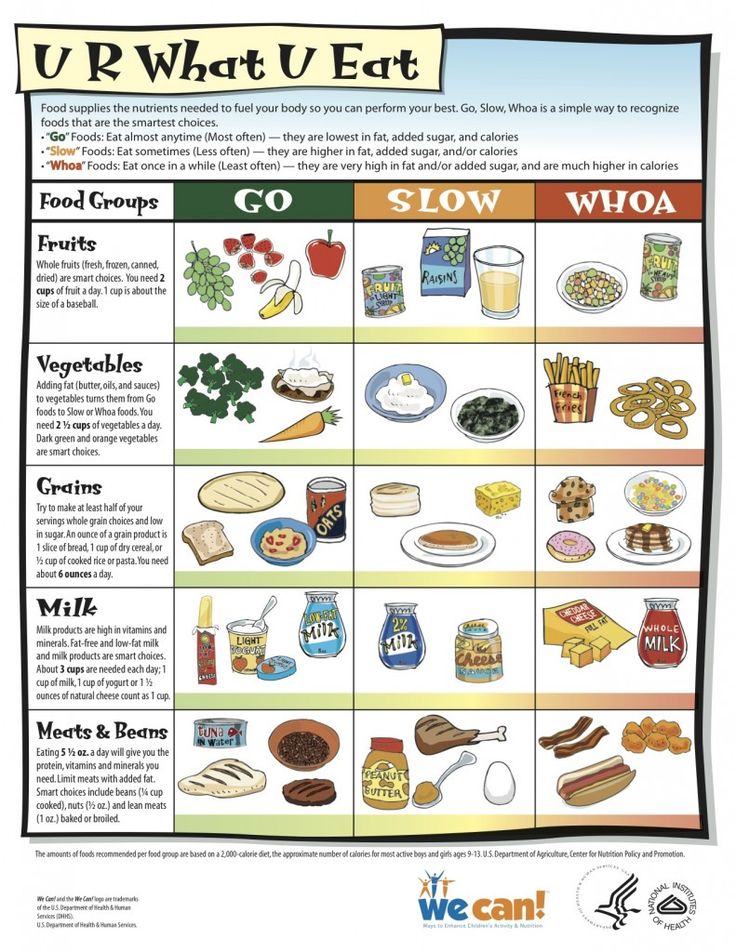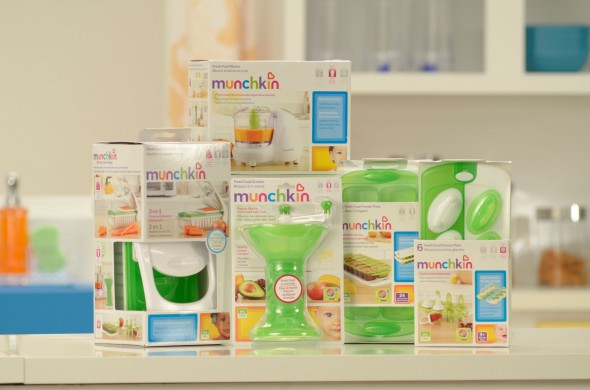Foods that can constipate a baby
Foods to Relieve Constipation in Babies
As new parents, we quickly learn that “poop” becomes part of one’s daily conversation. You start to calculate how much and how often baby poops. The doctor will ask you what it looks like and smells like.
When a baby is suddenly not pooping, we start to get concerned. Especially if he becomes cranky or cries while pooping. This can be a sign of constipation.
It can happen to breastfed or formula fed babies and often begins when switching to solid foods. When their digestive systems are only used to breast milk or formula, solid foods can be tough to digest.
The frequency of bowel movements, or the lack of, is not the only clue your little one might be constipated. If your baby’s poop is very hard or seems difficult to pass he may also be suffering from constipation.
There are certain foods that are more likely to cause constipation and discomfort. If you suspect your baby is suffering from constipation, read on. We will run through the foods that can trigger constipation and foods to relieve constipation in babies.
- Yogurt
- White bread
- Pasta
- Applesauce
- Unripe bananas
- Cooked carrots
- Rice cereal
- Cheese
These foods are known to trigger gassiness and constipation in most babies. But, it is important for you to keep track of your own baby’s symptoms related to what they are eating. What triggers constipation in one child may not necessarily be the same in another baby. To help avoid constipation in babies, you need to feed your little one foods that are high in fiber content or have natural laxative properties. Just some small dietary changes can make your baby feel better and get his digestion flowing more smoothly. By adding some of the following foods to your baby’s diet you will surely get the “poop talk” back to a more positive conversation.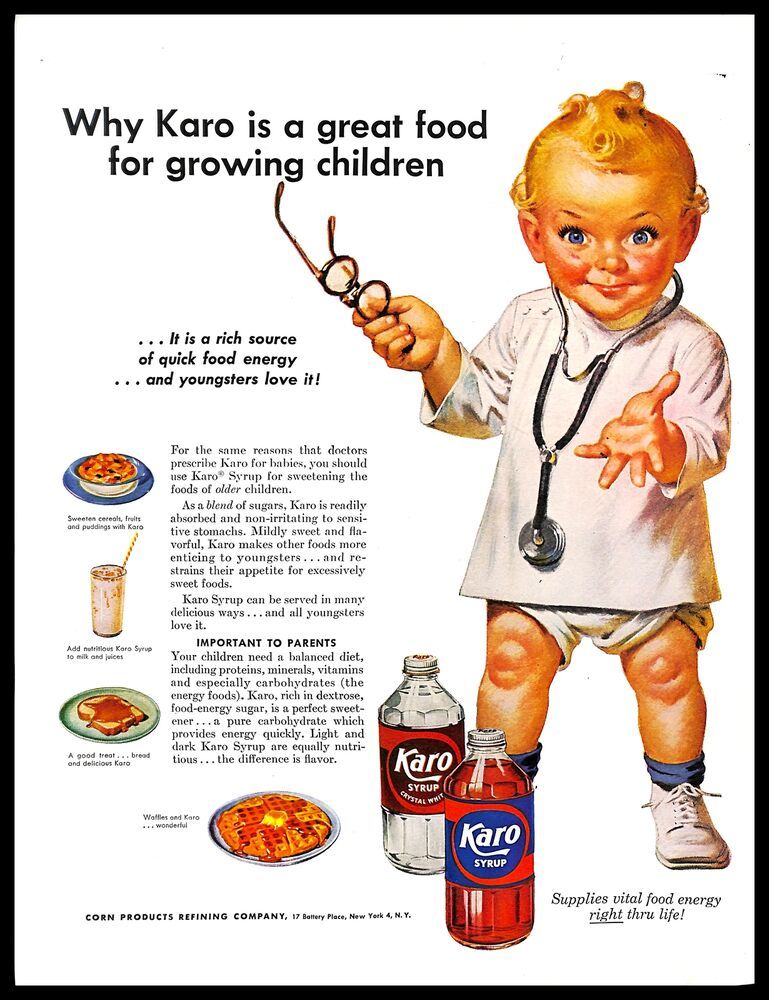
Foods to Help Relieve Constipation in Babies:
- Cheerios: High in fiber. Try the whole grain option for babies who are already eating finger foods.
- Soy Products: This can be especially helpful for babies who are allergic to milk proteins. If mom avoids dairy and replaces it with soy products, her breast milk may become more favorable for baby’s digestion.
- Berries: Berries of all kinds are packed with fiber and their natural sweetness is a favorite of children of all ages.
- Prunes and figs: Packed with fiber and also a natural laxative. You can cut them into small cubes and allow baby to feed himself or serve as a juice or ice pop
- Oatmeal and other whole grains: These are naturally high in fiber and energy. Oatmeal is available commonly as a pre-cooked baby cereal and whole grain bread is a good source of whole grain for your baby.
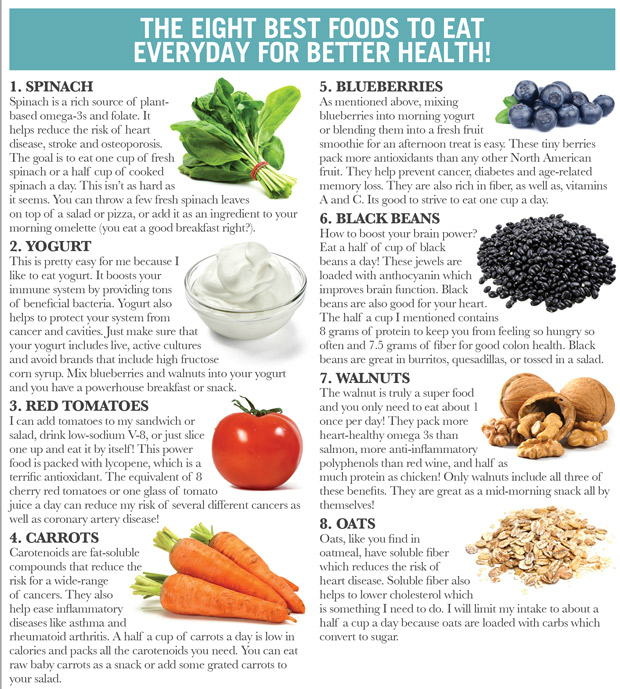 **Try mixing the cereal with a little prune juice!
**Try mixing the cereal with a little prune juice! - Beans: “Beans, beans the magical fruit, the more you eat the more you toot!” We already know that beans, of any kind, have a great mixture of soluble and insoluble fiber both of which help in digestion and help to promote more regular bowel movements.
- Pears, Plum, and Apples: All are rich in fiber and are available to be purchased in baby food jars at your grocery store or can be served cubed to baby.
- Sweet Potatoes: These are extremely rich in fiber, it’s best to have them with the skin on, however this can be difficult for babies to chew so consider a puree
- Nuts: Most nuts are a great source of protein and fiber - but feed them in moderation because they are also high in fat. Most pediatricians recommend waiting until one year of age to serve nuts and tree nuts to children for the sake of allergies.
- Water: Additional liquid into baby’s diet will help to keep stool softer.
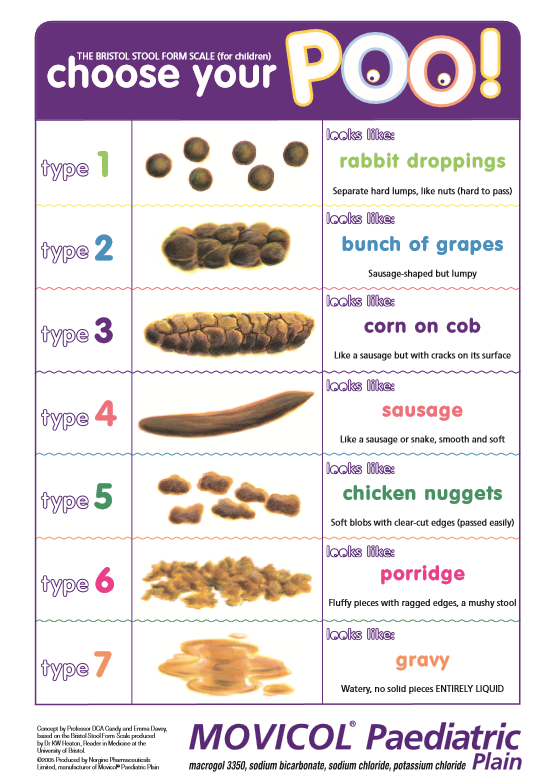 Offering water or diluted juice in a sippy cup will help with constipation. (However, always check with your doctor before adding water or other liquids to baby’s diet as babies younger than 6 months generally get all the water they need through breast milk or formula.)
Offering water or diluted juice in a sippy cup will help with constipation. (However, always check with your doctor before adding water or other liquids to baby’s diet as babies younger than 6 months generally get all the water they need through breast milk or formula.)
Hopefully just some simple diet modifications will leave your baby pooping freely and feeling much more comfortable! Remember that every baby is different and their body will react differently to certain foods.
If simple diet changes don’t seem to make a difference please seek out the advice of your doctor so they can rule out any other serious issues.
List of 20 Foods that Cause & Relieve Constipation in Babies
If you are new parents, discussing your baby’s pooping habits must be a regular thing now. You’ll be surprised at how much you think, discuss, and worry about your baby’s poop schedule. If your baby has a hard time passing stool or passes a lot of gas daily, then without a doubt, you will worry and might think of consulting your baby’s paediatrician at odd hours.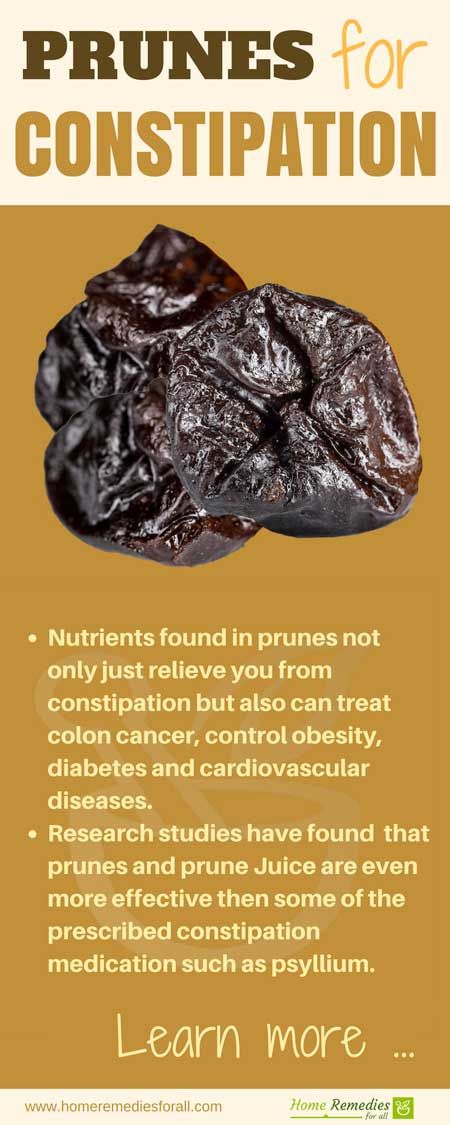 We understand your concern, but there is no need to panic. Your little one might be suffering from constipation, and it is very common in babies and toddlers.
We understand your concern, but there is no need to panic. Your little one might be suffering from constipation, and it is very common in babies and toddlers.
A child’s pooping habits will depend on his eating habits. There are some foods which tend to constipate babies, especially when you start giving them solid foods. Read on to know about the various foods that can cause and relieve constipation in children, and find out how you can ensure that your child has a good bowel movement.
Video: 20 Foods That Cause and Relieve Constipation in Babies
Foods That Cause Constipation in Infants
If your child has just started eating solid foods and he is having difficulty in passing stool or has a dry and hard stool, then it is a sign of constipation.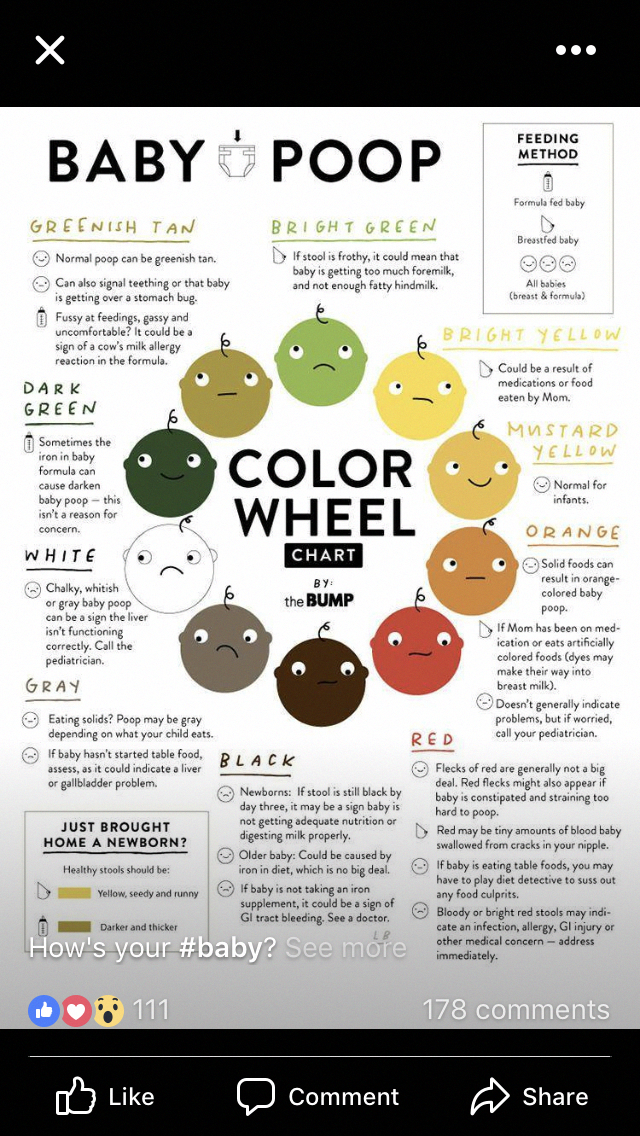 Baby’s fluid intake and diet will determine his bowel movements. Here is a list of foods that cause constipation in babies.
Baby’s fluid intake and diet will determine his bowel movements. Here is a list of foods that cause constipation in babies.
1. Milk Protein
Milk protein can cause constipation in babies. Milk proteins other than in the breast milk can cause this problem, and as a parent, you need to be careful once you start giving formula milk to your baby. Sometimes, babies may even develop an allergy to the protein present in breast milk, which may result in constipation.
2. Formula Food
Babies are often fed formula in their early years. Formula food consists of ingredients that are difficult to digest, which might result in constipation. Formula milk even contains complex proteins that may harden the poop and thus cause constipation.
3. Rice
Rice and porridge are the two solid food for babies that most mothers think of introducing as the first food to their babies. But some babies may find it hard to digest rice and may feel constipated.
4. Carrots
Carrots, when given raw or in the form of juice, are usually good for babies.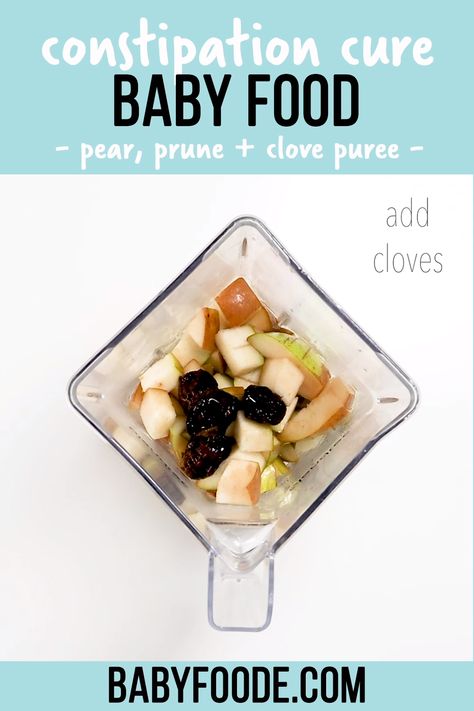 But, if you feed steam-cooked carrots to your baby, then he might feel constipated. Steamed carrots tend to solidify the poop making it difficult for babies to excrete.
But, if you feed steam-cooked carrots to your baby, then he might feel constipated. Steamed carrots tend to solidify the poop making it difficult for babies to excrete.
5. Raw Bananas
Babies are often fed raw bananas, as cooked vegetable, or as a porridge made out of sun-dried raw banana powder. Although giving a ripe banana is good, unripe banana is not. If you give an unripe banana to your baby, he might feel constipated and have gastric problem. Under-ripe or unripe bananas have starch in them, which can be hard for a baby to digest.
6. Apples
Apples are known to harden the stool so eating them while suffering from diarrhoea can help. But steamed apples, a popular baby food, can cause constipation in babies. So don’t give steamed apples to your baby. Also avoid giving applesauce to your baby as it contains pectin protein, which hardens the stool.
7. Cheese
Cheese is an excellent source of many essential vitamins and minerals and is a superfood for babies.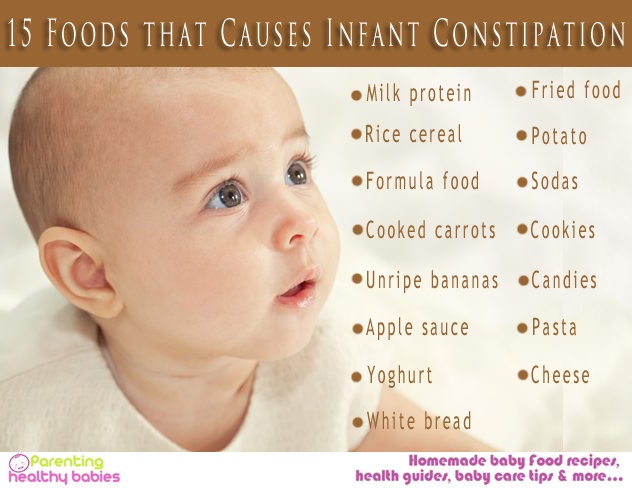 It is usually given to babies as a snack. However, cheese is low in fibre and can cause constipation.
It is usually given to babies as a snack. However, cheese is low in fibre and can cause constipation.
8. White Bread
White bread, made with all-purpose flour, is a processed form of grain and is low in fibre. Fibrous foods are known to improve digestion. However, white bread lacks fibre in substantial quantity and can cause constipation in babies.
9. Potatoes
Regular potatoes with skin have about 3 gm of fibre and can prevent constipation. If you give your baby potatoes with other veggies, then it won’t be a problem. However, if you give him potato chips or potatoes with butter or sour cream, then he may suffer from constipation.
10. Yoghurt
Yoghurt contains good bacteria that facilitate digestion. But, it also has a binding effect on food substances and sometimes may cause constipation in children.
Foods That Help Relieve Constipation in Infants
Now that you know which foods cause constipation in babies, so avoid incorporating them into your baby’s diet.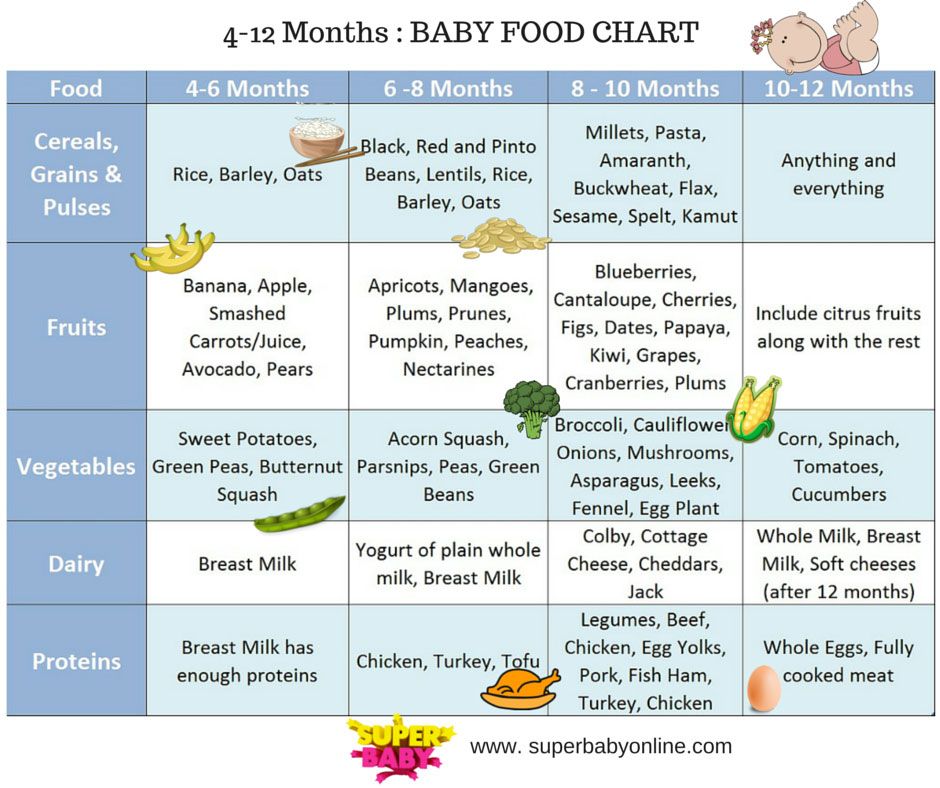 If your baby is already suffering from constipation, then include these high-fibre foods in your baby’s diet. These foods will not only relieve the condition but also prevent it from occurring in future.
If your baby is already suffering from constipation, then include these high-fibre foods in your baby’s diet. These foods will not only relieve the condition but also prevent it from occurring in future.
1. Prunes
Prunes are rich in fibre and a great source of multivitamins. Being a good source of fibre, they can ease and speed up the bowel movements. Prunes can be soaked overnight and given to a baby first thing in the morning. You can also give your baby prune juice. Prunes and prune juice are an excellent remedy for constipation.
2. Beans
Beans are packed with fibre and can be included in a baby’s diet if he is suffering from constipation. Eating beans will improve his bowel movements. As beans contain both soluble and insoluble fibre, it will help in digestion of food and help your little one excrete properly.
3. Green Peas
Fresh green peas available in winters are loaded with fibre – they are a perfect food to include in your baby’s diet if he is constipated. Peas can be given as a simple snack by just boiling and seasoning. Infants can be given boiled peas in the pureed form to aid bowel movements.
Peas can be given as a simple snack by just boiling and seasoning. Infants can be given boiled peas in the pureed form to aid bowel movements.
4. Apricots
Apricots are another seasonal fruit used for treating constipation. It can be given raw or in the form of juice. Dried apricots are also available in the market, which can be soaked overnight and given to babies.
5. Oatmeal
Oatmeal, a common and widely preferred food for babies, is an excellent food for children with recurrent episodes of constipation. Oatmeal can provide your baby with much-needed fibre and can prevent constipation.
6. Pears
Pears are rich in fibre and Vitamin C. Both fibre and Vitamin C aid in proper digestion and relieve constipation. Babies can also be given a few drops of fresh pear juice to cure constipation.
7. Broccoli
Broccoli, a superfood for babies, is a rich source of protein and fibre. Broccoli is also a good source of fibre, Vitamin C, Vitamin K, and folate. Green vegetables like spinach and broccoli add weight to stools, making them easier to pass through the gut. You can give small steamed broccoli florets to your baby as finger food. Broccoli also contains sulforaphane, which may protect the gut and aid digestion.
Green vegetables like spinach and broccoli add weight to stools, making them easier to pass through the gut. You can give small steamed broccoli florets to your baby as finger food. Broccoli also contains sulforaphane, which may protect the gut and aid digestion.
8. Sweet Potatoes
Sweet potatoes, unlike other tubers, are one of the best baby foods and they do not cause constipation. Sweet potatoes can help in relieving constipation and provide essential nutrients and carbohydrates to your growing baby.
9. Berries
Berries are rich in antioxidants and are an excellent food for babies and toddlers. They are also high in fibre, which is why they are a must-include in your baby’s diet. You can give berries to your baby in pureed form. By eating berries, your little tot won’t complain of constipation.
10. Whole Grain Bread
Whole grains foods have high fibre content in them, which is good for the heart as well as for the digestive system. You can give whole wheat bread to your baby – it is high in fibre and will prevent constipation in your little one.
FAQs
1. How Will You Know That Your Baby is Constipated?
If your baby is constipated, he obviously won’t be unable to communicate that to you. So watch out for these signs of constipation in him –
- He has three or fewer than three bowel movements in a week.
- His stools are hard and dry.
- He has a hard time pooping.
- He cries continuously and has a stomach ache.
2. How Can You Prevent Constipation in Your Baby?
To prevent and treat constipation in babies, here’s what you can do:
- If your baby has crossed the six-month mark, you can make him sip water in small amounts. Before six months, he will get all the hydration he needs through breast milk. Later, you can start with foods that contain water and fibre, as water and fibre will improve his bowel movements.
- Include high-fibre foods in his diet. Make prunes, berries, whole grains, and pulses in his diet as they are high in fibre content and aid digestion.

- Get your child into the habit of pooping. Once he is ready for potty training, make sure you make him sit on the toilet seat for at least 10 minutes at about the same time daily. It will get him into the habit of going to the toilet.
Many times, parents go through a lot of stress when their babies suffer from constipation. If your child is constipated, don’t worry. By making slight changes in his diet and encouraging him to do some physical activity (however, small) regularly can cure constipation and other stomach-related problems in him. However, if the problem persists and your baby doesn’t feel better, consult a doctor.
Also Read: Indigestion in Children
Mother's nutrition in case of constipation in a child
Co-author, editor and medical expert - Volosov Dmitry Dmitrievich.
Views: 291 062
Last update date: 27.12.2022 G.
Average Reading time: 8 minutes
Content:
- Classification of constipation in newborn
- Causes of constipation in infants
- Importance of maternal nutrition in constipation in the infant
- Recommended products
- Products not recommended
- Maternal and child feeding rules to avoid constipation
- Feeding mother's menu for several days
Breast milk allows the baby to receive all the nutrients necessary for its growth and full development, and saves the mother from worrying about the correct selection of milk formulas, the temperature of the prepared baby food, etc.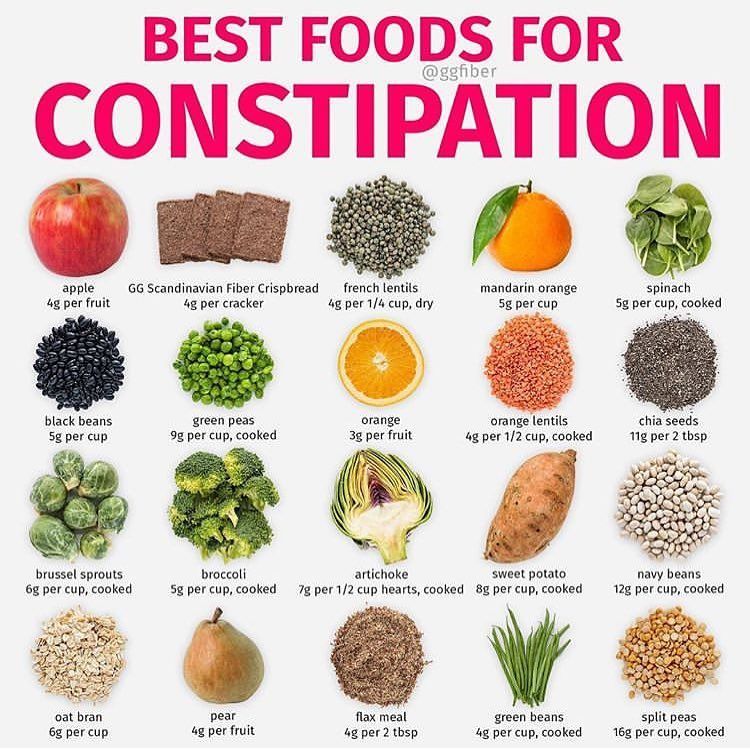 But there is a nuance in breastfeeding: the quality of the baby’s digestion directly depends on maternal diet. Therefore, quite often women turn to the doctor with the question of what to eat for the mother if the child has constipation, and how to normalize the stool of the newborn by correcting the diet of the mother. nine0003
But there is a nuance in breastfeeding: the quality of the baby’s digestion directly depends on maternal diet. Therefore, quite often women turn to the doctor with the question of what to eat for the mother if the child has constipation, and how to normalize the stool of the newborn by correcting the diet of the mother. nine0003
Classification of constipation in newborns and infants
Delayed stool in children can be acute or chronic. In the first case, it occurs once or is observed periodically, but with large intervals between episodes. In a chronic condition, this problem is relevant for a long period: the symptoms of constipation are observed constantly for several weeks or months.
In addition to classification by flow, constipation is divided into atonic and spastic. In the first case, the peristalsis is sluggish and weak, and the excreted feces are dense and voluminous. With spastic constipation, excessive peristalsis is observed in one of the sections of the intestine, which leads to a temporary "blockage" of feces and its difficult movement.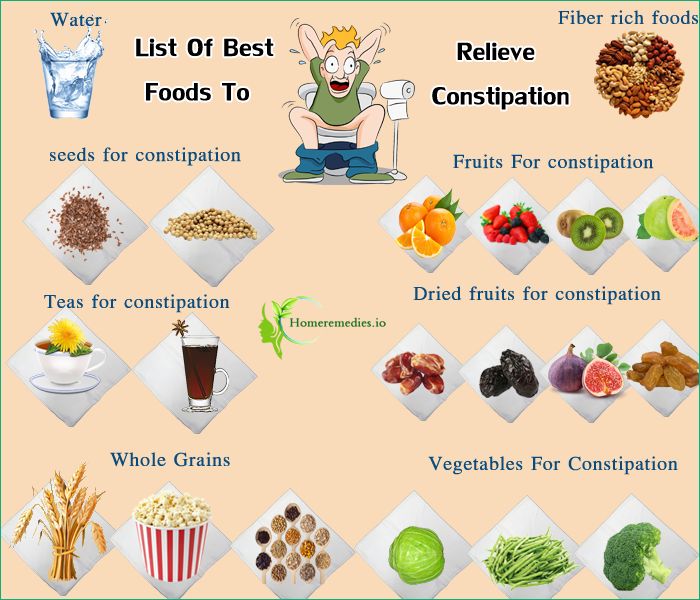 Feces with spastic constipation are heterogeneous, divided into small, dry and hard lumps. nine0003
Feces with spastic constipation are heterogeneous, divided into small, dry and hard lumps. nine0003
Back to content
Causes of constipation in infants
The most common causes of constipation in infants are:
- Improper nutrition of the mother. Maternal nutrition for constipation in a breastfed infant should be considered first. It is the violations of the diet in the mother that often lead to a delay in the stool in the child. The diet of a nursing mother with constipation in a baby often includes foods that have a fixing property. nine0026
- Features of the nervous system of the newborn. A kind of immaturity of the mechanisms responsible for innervation (that is, the supply of organs and tissues with nerves, ensuring their connection with the central nervous system) of the intestine can cause constipation due to an insufficient response of receptors to irritation by fecal masses.
- Maternal medication. A number of drugs necessary for the treatment of various diseases and conditions in a nursing mother give side effects in the form of a decrease in intestinal tone, slowing down peristalsis, etc.
 Therefore, when prescribing drug therapy, a woman should inform the doctor that she is breastfeeding. nine0026
Therefore, when prescribing drug therapy, a woman should inform the doctor that she is breastfeeding. nine0026
Back to Contents
Importance of Maternal Nutrition in Constipated Infants
Nursing Nutrition in Constipated Infants is much more important than it might seem at first glance. So, the lack of liquid in the diet leads to an increase in the fat content of milk, which can cause a delay in stool in a child. Consumption of a large amount of sweets and baked goods can change the chemical composition of milk. It also negatively affects the functions of the intestines in the baby. And the lack of plant products in the menu - vegetables and fruits, vegetable oils, etc. - reduces the amount of vitamins and minerals in breast milk, which can provoke not only constipation, but also other medical problems. nine0003
Back to content
Recommended foods
What to eat for constipated nursing mothers, you can choose from the list of recommended foods:
- Cereals .
 Wheat, oatmeal, corn, buckwheat porridge, whole grain bread, wholemeal or bran bread.
Wheat, oatmeal, corn, buckwheat porridge, whole grain bread, wholemeal or bran bread. - Meat products. All varieties of lean meat boiled, baked or stewed, soups in weak broths.
- Vegetables . Table beets, pumpkin, zucchini, cucumbers, cabbage, potatoes, tomatoes in the form of salads from fresh or boiled vegetables, side dishes, independent dishes (soups, stews, casseroles, etc.). nine0026
- Dried fruits . Dried apricots and prunes are the best laxative foods, but they should be limited to 3-5 per day. per day, as if consumed in excess, they can cause diarrhea.
Back to Contents
Unrecommended Foods
A diet rich in laxatives and fiber is not the only requirement for a constipated infant diet. It is equally important to exclude from the maternal menu products that produce a fixing effect. These include rice, semolina, pasta, muffins, sweets, pears, pomegranates, strong brewed tea, coffee, cocoa, chocolate. nine0003
nine0003
If constipation in a baby is accompanied by intestinal colic and increased gas formation, all legumes should also be excluded from the diet, and vegetables and fruits from the recommended list should be consumed only in processed form (soups, mashed potatoes, stews, etc.). Laxative products while breastfeeding should also be limited if the baby has unstable stools - alternating constipation and diarrhea.
Back to Contents
Maternal and Infant Feeding Rules to Avoid Constipation
Maternal nutrition in constipated infants is of great importance. But the diet and food hygiene mean no less: they help eliminate a number of factors that have an undesirable effect on the mother's body and, as a result, on the quality of breast milk.
Observe meal and feeding times . A clear regimen will make mom's digestion more efficient and, accordingly, improve the absorption of nutrients. And meals in small portions 4-5 times a day will ensure a uniform supply of nutrients to the milk.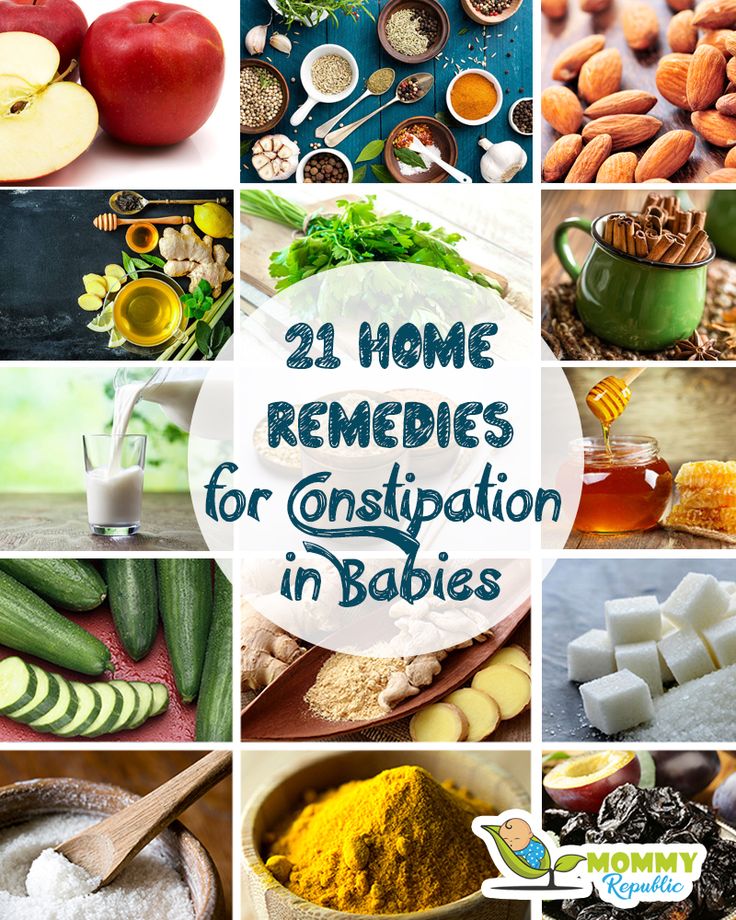 Feeding the baby should be based on the same principle. Teach him to eat at strictly allotted hours according to his age - a "disciplined" digestive system is much less prone to constipation. nine0003
Feeding the baby should be based on the same principle. Teach him to eat at strictly allotted hours according to his age - a "disciplined" digestive system is much less prone to constipation. nine0003
Maintain good feeding hygiene . In addition to traditional hygienic procedures before feeding (washing hands, wiping the nipple and areola), it is necessary to ensure that the child grasps the nipple correctly. With sucking movements, he should not swallow air - this can provoke disruption of the digestive tract. To ensure better hygiene and to make the mother feel more confident during breastfeeding, we recommend using JOHNSON’S ® 9 Breast Pads0134 Baby.
MICROLAX ® prepared a visual material especially for mothers of babies prone to constipation:
Up to content
Menu for a nursing mother for several days
If the baby has constipation, what should the mother eat and in what quantities? Here is the approximate composition of the diet for two days:
| 1st breakfast | Monday: 100 g of muesli filled with 100 g of yogurt or low-fat kefir, and weak tea with crispbread. Tuesday: 100 g porridge (oatmeal, buckwheat, barley), 150 g vegetable salad, dried fruit compote. |
| 2nd breakfast | Monday: apple, whole grain bread with a slice of cheese. Tuesday: Bran bread sandwich with honey, weak green tea. |
| Lunch | Monday: Serving of vegetable soup, 150 g of mashed potatoes with boiled beetroot salad and 100 g of boiled or baked fish, compote. Tuesday: cup of weak beef broth with whole grain toast, 150 g vegetable casserole, weak tea with 1 tsp. honey. |
| Snack | Monday: 2-3 pcs. dried apricots, 200 ml of kefir. Tuesday: 150 g finely grated fresh apple and carrot salad dressed with 1 tbsp. l. low fat sour cream. nine0003 |
| Dinner | Monday: 200 g syrniki, prunes decoction. Tuesday: 150 g chicken breast, 100 g fresh or boiled vegetable salad, kefir - 200 ml. |
Further, your diet should be built similarly to this example, taking into account the recommended and undesirable products.
Back to Contents
The information in this article is for reference only and does not replace professional medical advice. For diagnosis and treatment, contact a qualified specialist. nine0025
Foods that prevent constipation and improve digestion
In developed countries, up to 20% of the population suffers from constipation. In the last article on this topic, we talked about what constipation is and what are the most common causes of constipation. In this material, we understand why you should not immediately take constipation remedies, but it is better to first pay attention to your diet.
If you or someone you love has occasional or regular bowel problems, read on.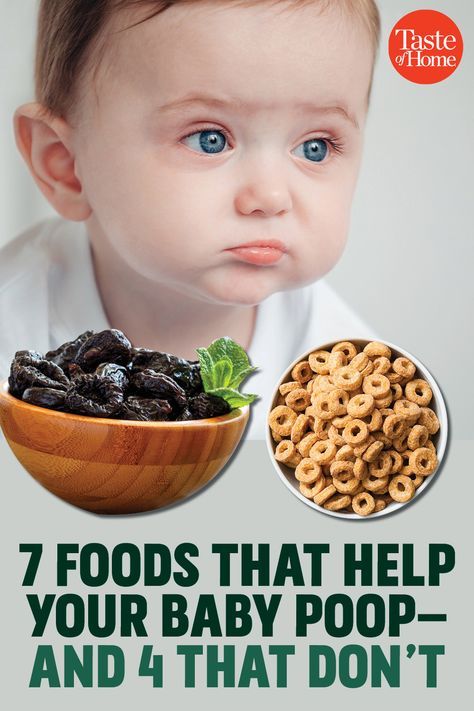 You will learn about healthy products that help you go to the toilet in a natural way. nine0003
You will learn about healthy products that help you go to the toilet in a natural way. nine0003
If constipation lasts for weeks or is accompanied by pain, blood and mucus in the stool, and other unpleasant symptoms, see a doctor.
Contents
- 1. How different types of fiber affect bowel movement
- 2. Soups: more water and fiber
- 3. Fermented Foods - Gut Probiotics
- 4. Fruit with stones against constipation
- 5. Whole grains and bran
- 6. Legumes in the fight against constipation
- 7. Seeds for Better Digestion
- 8. How to eat fiber
- 9. Important note
How different types of fiber affect bowel movements
Photo by Ella Olsson / UnsplashFiber, or plant fiber, helps to make stools regular and feeds good gut bacteria. It comes in soluble and insoluble forms, and both types are equally important for healthy digestion.
The human body is unable to digest fiber.The gut bacteria do it for us. nine0289
Soluble fiber absorbs liquid and forms a gel-like substance that facilitates the movement of feces through the gastrointestinal tract. It also creates a feeling of fullness.
Atlas microbiota test helps you understand how bacteria do this. Based on the results of the test, every week you will receive a list of products to improve the functioning of your microbiota.
Soluble Fiber absorbs liquid and forms a gel-like substance that facilitates the passage of stool through the digestive tract. It also creates a feeling of fullness. Foods rich in fiber of this type include apples, oatmeal, citrus fruits. nine0003 Photo by Andre Taissin / Unsplash
Insoluble fiber adds bulk to the stool and stimulates intestinal receptors to speed up stool elimination. Insoluble dietary fiber also retains water and prevents feces from turning into a dry, lumpy mass. This type of dietary fiber is found in plants of the legume family, nuts, and potatoes.
Photo by Maddi Bazzocco / Unsplash![]()
Soups: more water and fiber
The high fiber and liquid content of vegetable soups makes them an excellent and affordable tool for solving digestive problems. The main thing is not to digest vegetables so that the fiber does not lose its beneficial properties. nine0003 Photo by Gianluca Gerardi / Unsplash
Milk and cream soups can cause bloating and make you feel unwell. For thicker, more textured soups, and to avoid GI side effects, opt for recipes with potatoes. The starch it contains will give the soup a creamy texture.
Fermented foods - probiotics for the intestines
Fermented foods such as kefir or sauerkraut, are rich in beneficial probiotics - lactic acid bacteria Lactobacillus and Bifidobacterium. In the intestines, such bacteria resist dysbacteriosis and produce short-chain fatty acids that maintain mucosal health and normal peristalsis. nine0003
Fermented foods contain little or no lactose, so people with lactose intolerance don't have to worry about stomach discomfort.
Photo by little plant / UnsplashIf a slight seething after their use nevertheless appeared, the reason is more likely in the probiotic effect than in intolerance. This means that the intestinal bacteria are working hard on the breakdown of fiber, while releasing gases.
If the sour taste and smell of kefir repels you, try other fermented dairy products, such as Greek yogurt, fermented baked milk, acidophilus.
Available probiotics for vegans are kombucha, kimchi cabbage, sauerkraut and other fermented vegetables, miso paste, cashew or soy based yogurt.
With the Atlas Microbiota Test, you can check the bacterial composition of your gut and understand which prebiotics and probiotics are right for you.
Fruit with stones against constipation
These juicy and fibrous fruits will quickly help to improve digestion in a natural way. Some fruits with stones also contain sorbitol, which has a mild laxative effect.
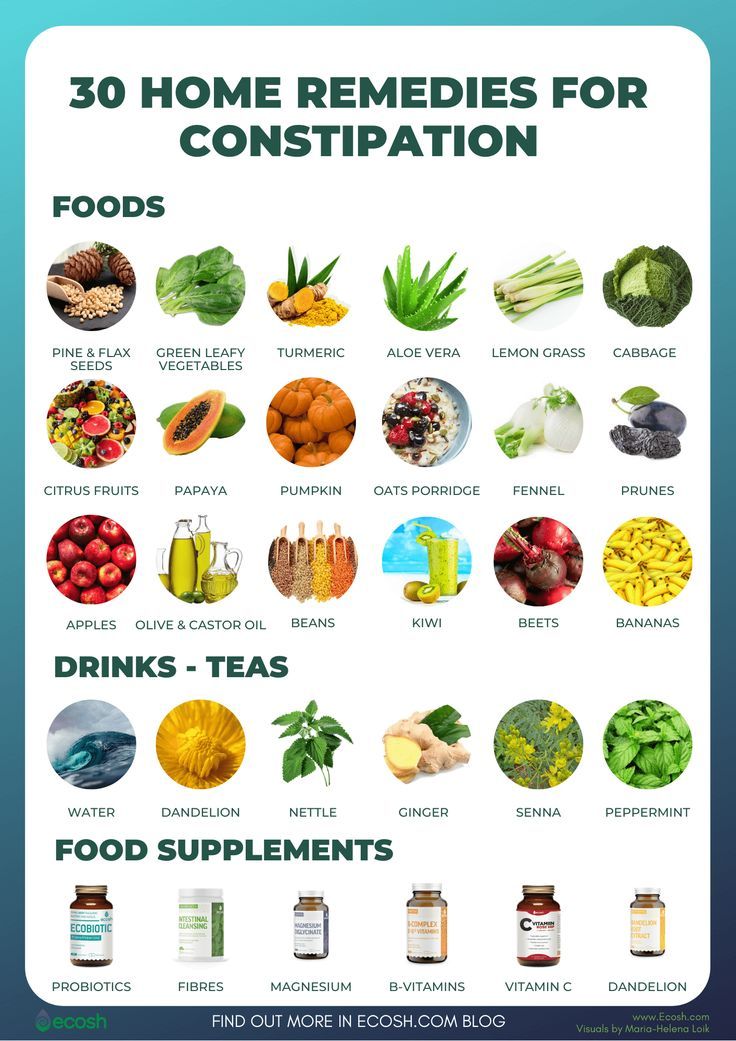 Apricots, plums, peaches, nectarines are considered the most effective against constipation.Photo by Elena Mozhvilo / Unsplash
Apricots, plums, peaches, nectarines are considered the most effective against constipation.Photo by Elena Mozhvilo / UnsplashIf the fresh fruit season is over, you can limit yourself to prunes and dried apricots. It is important to always drink dried fruits with water - if you eat them dry on the go, this will only worsen the condition.
Whole grains and bran
Untreated grain retains the outer shell, endosperm and germ. Such grains contain a maximum of nutrients and fiber, so for chronic constipation, whole grains and bran (separated grain shells) should be included in the diet.
Photo by Christopher Alvarenga / UnsplashThese include:
- whole grain toast for breakfast;
- bran porridge;
- blasted whole grain breads for snacking;
- brown rice for garnish. nine0026
If you don't like the taste of brown rice, you can buy a mixture of regular brown rice. As for flax crackers, such a snack is not suitable for everyone - dense raw grains may not be digested at all.
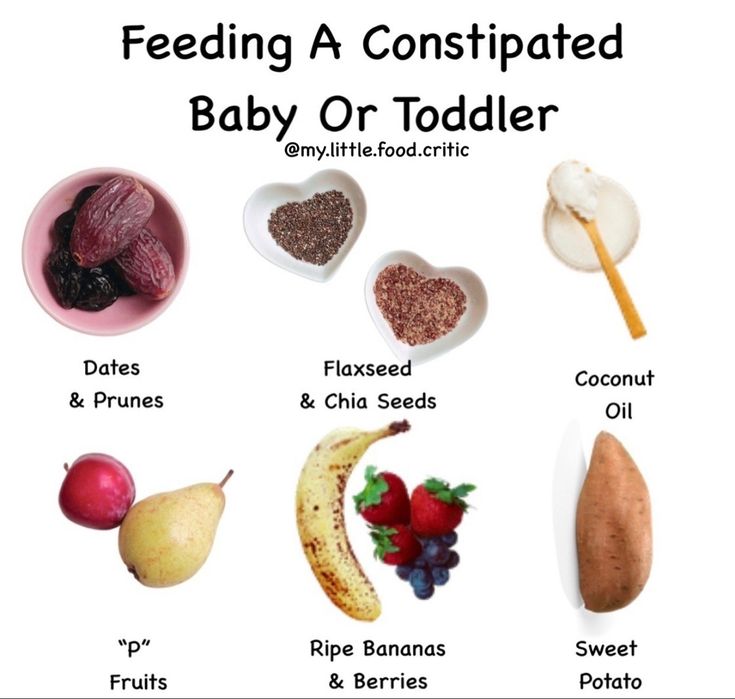
Legumes in the fight against constipation
Lentils, chickpeas and beans from the legume family contain a lot of fiber - this is what causes flatulence in many people. In order for this fiber to benefit, you need to add legumes in small portions of to the diet and focus on your well-being. In any case, gas is rather a positive sign, which indicates that the intestinal bacteria have something to eat. nine0003 Photo by engin akyurt / Unsplash
Before cooking, it is recommended to soak legumes in advance for several hours or even overnight in cold water. Canned chickpeas and beans are easier to digest because some of the "gas-forming" substances go into a liquid that can be drained.
You can also buy legume sprouts or get them yourself - they are also easier to digest. The spice asafoetida , according to some studies, can reduce bloating after legumes. nine0003
Regular Digestion Seeds
Chia Seeds are a trending source of soluble fiber.
Photo by Ash Edmonds / UnsplashThey also need to be diluted with water or added to cereals, smoothies, yogurts. Chia pudding or chia yogurt is a light breakfast or dessert option that will help keep the moisture in your stool and add the viscosity you need.
Psyllium Husk is sold dry as a natural remedy for constipation. It has a neutral taste and smells almost nothing. When diluted with water, the husk forms mucus, which is necessary for the formation of healthy stools. nine0003
More affordable soluble fiber - flax seeds . They are recommended for irritable bowel syndrome, chronic constipation and type 2 diabetes . Seeds need to be soaked in water overnight to get that gel-like texture. If you don’t want to wait, you can buy flaxseed porridge in the form of an instant mix.
How to eat fiber properly
Insoluble fiber must be chewed thoroughly and for a long time , otherwise coarse particles will irritate the esophagus and intestines.
If it takes you longer to eat a salad than a main course, that's perfectly fine. The better you chew, the better this food will be absorbed and digested. nine0003 Photo by Yoav Aziz / Unsplash
It is important to drink plenty of fluids. If fiber has nowhere to absorb water, it won't work as a natural laxative.
If you have never eaten a lot of fruits and vegetables, start with small portions and give your microbiota time to get used to the new diet.
There are several signs that you may be eating too much fiber. These are:
- bloating of the lower abdomen, distension and flatulence;
- Loose, unformed stools, in which undigested fibers are clearly visible.
Highlights
- A proper diet that includes soups, fermented and whole grains, and various types of fiber can help you improve your bowel habits.
- It is important to remember to drink plenty of water throughout the day.
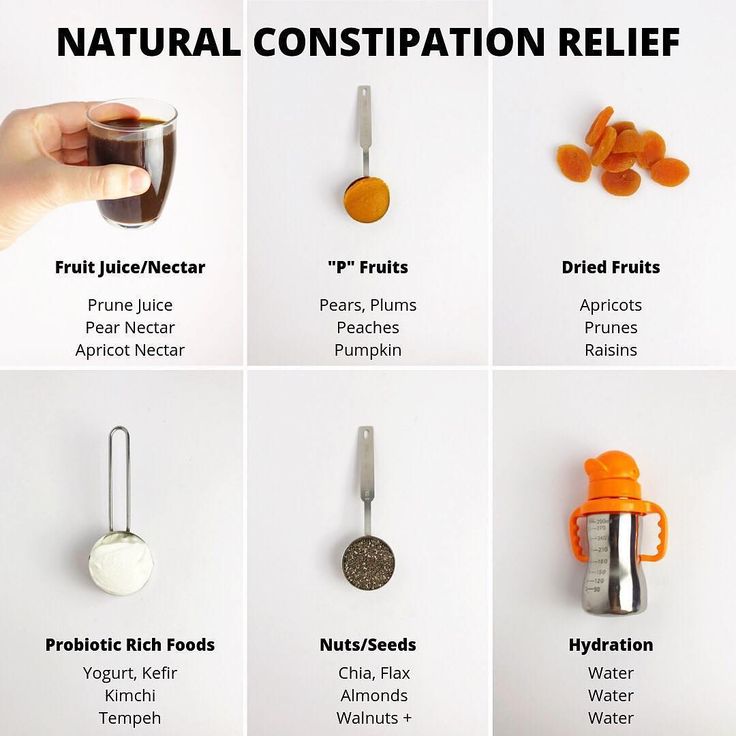

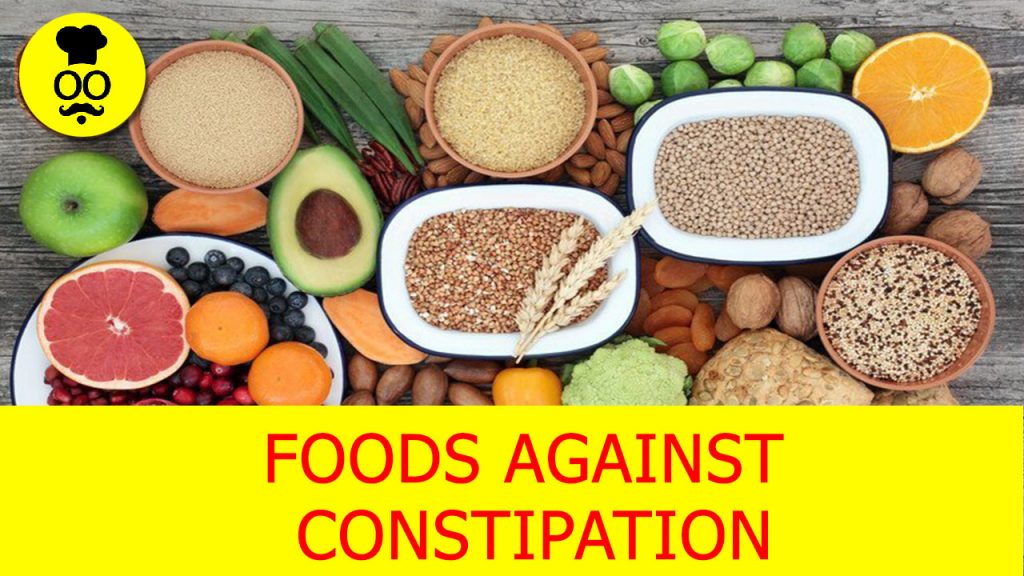 nine0003
nine0003 